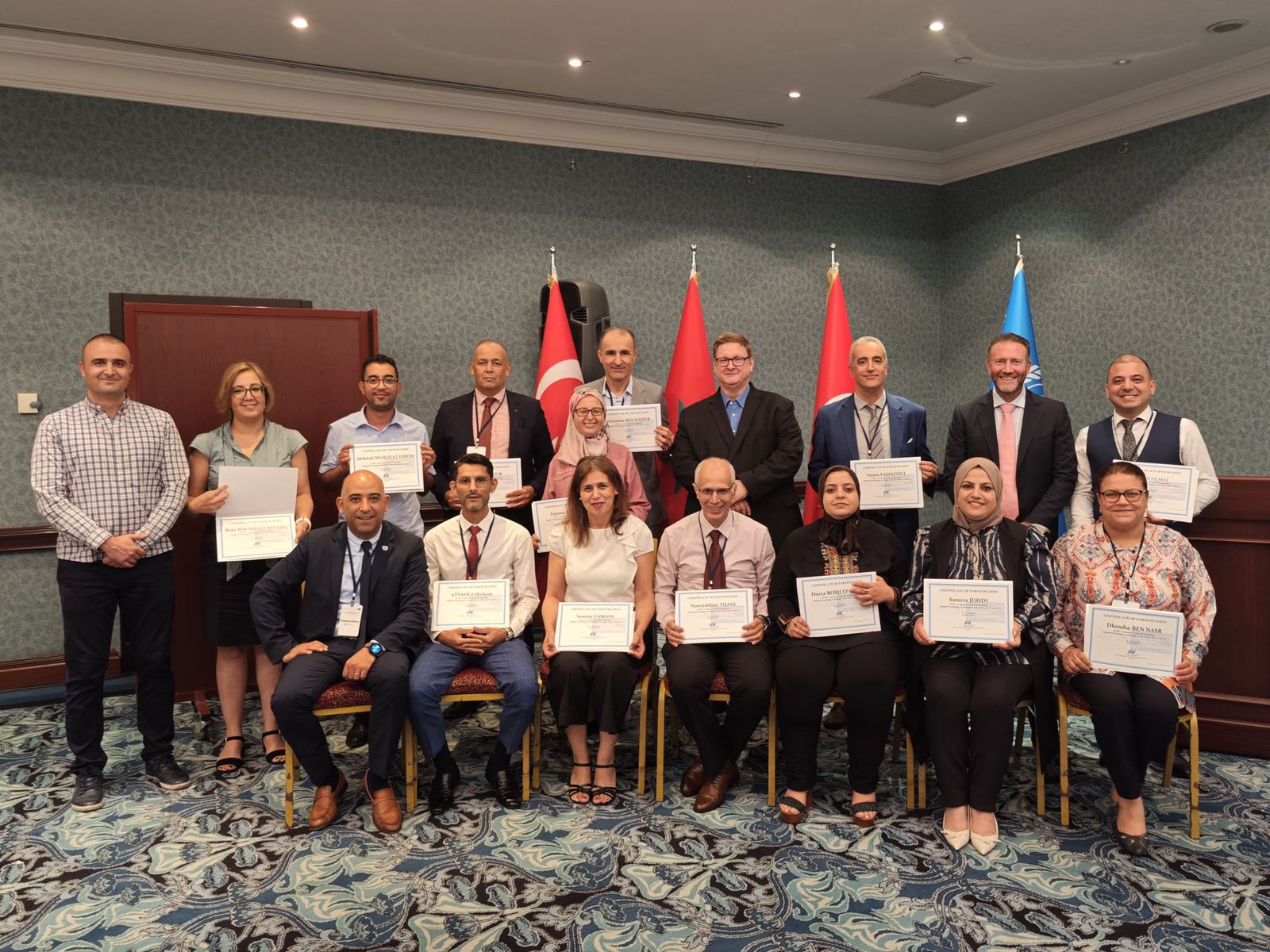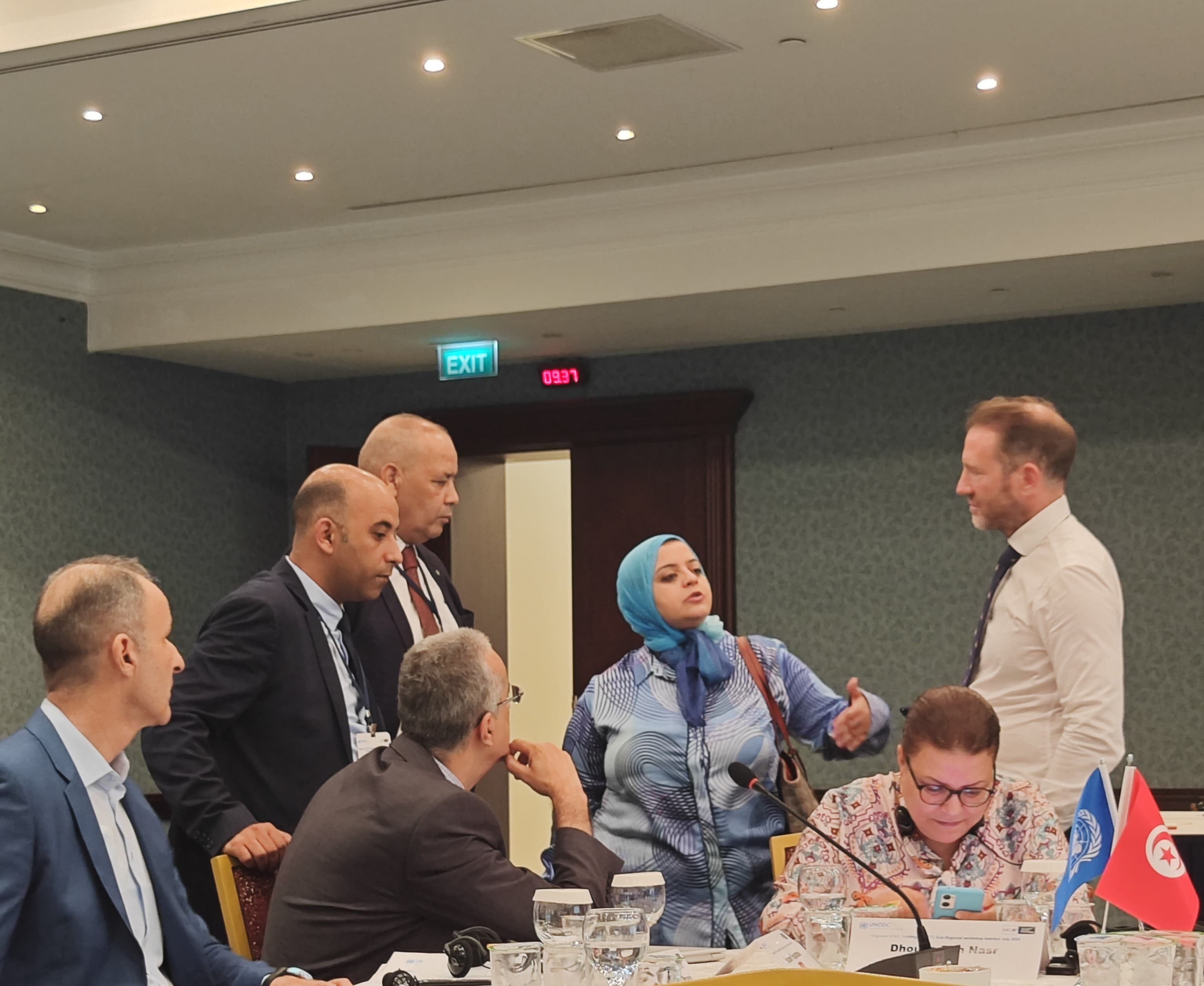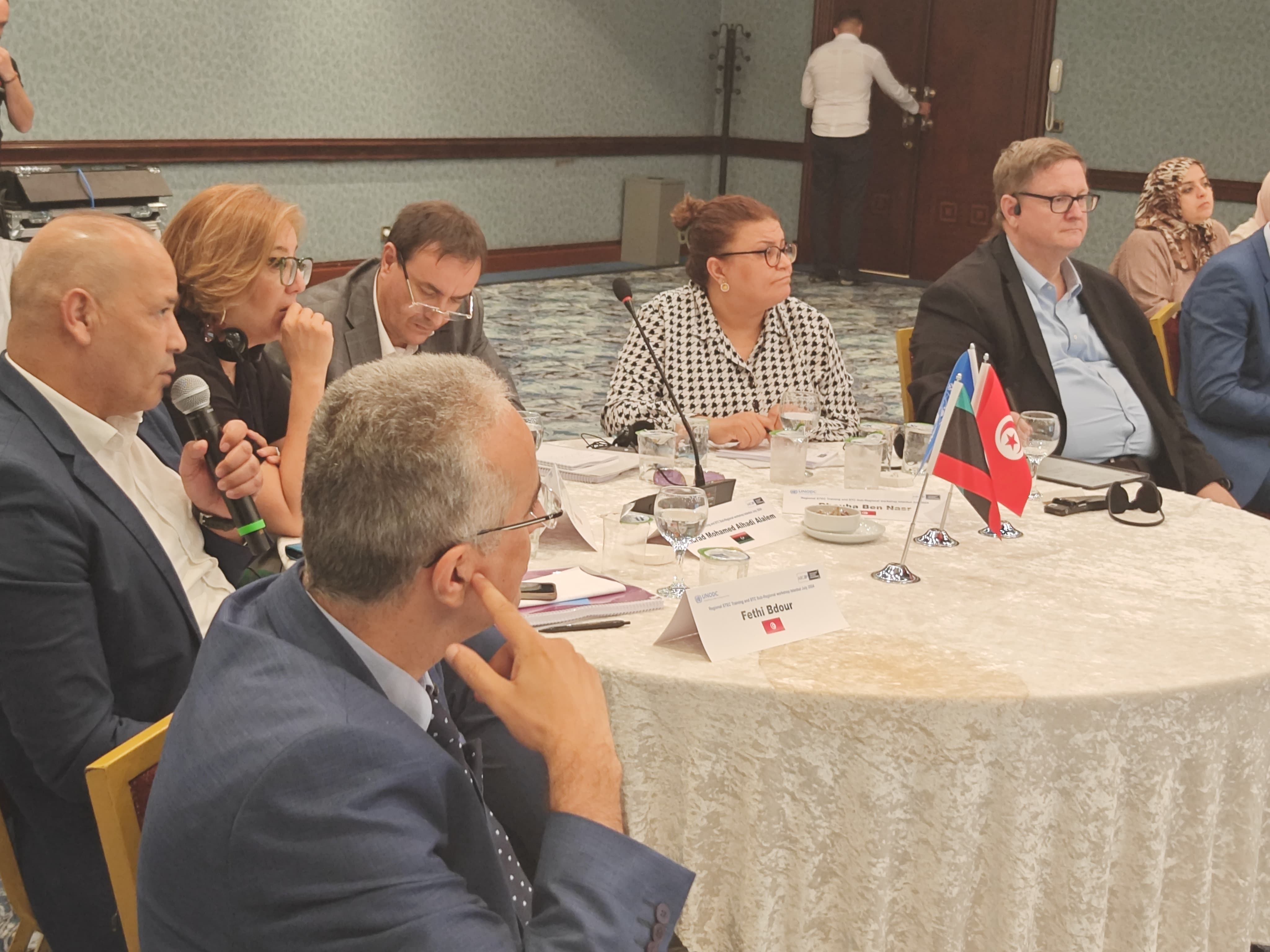Fostering Inter-Regional Cooperation: Workshop on Strategic Trade Control in line with UN Security Council Resolution 1540 for Libya, Morocco and Tunisia in Istanbul, Türkiye

July 2024, Istanbul, Turkiye: In July 2024, the United Nations Office on Drugs and Crime (UNODC) Passenger and Cargo Border Team (PCBT) organized two sequential inter-regional workshops on Strategic Trade Control (STC) for Libya, Morocco and Tunisia in Istanbul, Türkiye. This activity, generously funded by the US Department of State’s Export Control and Related Border Security Program (EXBS), was executed in partnership with the Government of the Republic of Türkiye.
The workshops were built on the provisions of the United Nations Security Council Resolution 1540/2004 (UNSCR 1540), which requires states to refrain from providing any form of support to non-state actors attempting to develop, acquire, manufacture, possess, transport, transfer or use nuclear, chemical or biological weapons and their means of delivery, in particular for terrorist purposes. The Resolution also mandates states to adopt and enforce appropriate laws to this effect as well as other effective measures to prevent the proliferation of these weapons and their means of delivery to non-state actors, in particular for terrorist purposes. It is considered a powerful tool for adoption and use by governments to achieve specific objectives, such as preventing the proliferation of weapons of mass destruction while influencing the behavior of other countries, entities or individuals.

Through its Strategic Trade and Export Control (STEC) capacity-building programme, UNODC PCBT is enhancing the capabilities of various countries across eight regions. During this very initiative, PCBT brought together representatives from several ministries and national agencies from the participating countries, such as the Ministry of Finance (Customs), the Ministry of Interior (Gendarmerie), the Ministry of Trade and Industry, the Ministry of Justice, and the Ministry of Foreign Affairs as well as members of the STC inter-ministerial working groups in Morocco and Tunisia. The workshop focused on discussing the challenges faced when enforcing sanctions and embargoes, with the participation of two observers from the host country, Türkiye. The workshop allowed the practitioners to study available international tools, instruments and cooperation mechanisms aimed at assisting and supporting them in their preventive and investigative efforts.
UNODC experts facilitated the event, with notable online contributions from Dr. Jonathan Brewer, a Visiting Professor at King’s College London. These sessions fostered active exchanges on national experiences and best practices in implementing effective national licensing systems and services to prevent the misuse of international supply chains for illicit trafficking of strategic commodities, particularly in Morocco and Tunisia.

UNODC experts facilitated the event, with notable online contributions from Dr. Jonathan Brewer, a Visiting Professor at King’s College London. These sessions fostered active exchanges on national experiences and best practices in implementing effective national licensing systems and services to prevent the misuse of international supply chains for illicit trafficking of strategic commodities, particularly in Morocco and Tunisia.
Additionally, the workshop featured an online presentation of an Estonian company known for setting up e-licensing systems in various countries. The event highlighted the success of the Estonian digital STC licensing system, implemented in twelve countries, showcasing it as an innovative solution for countries looking to streamline their efforts and address challenges in implementing STC. It encourages the use of digital solutions to manage licenses related to dual-use goods and services.
Through these capacity-building activities, UNODC and its partners continue to strengthen international cooperation, enhancing the strategic trade control capacities of Libya, Morocco and Tunisia. This initiative marks a significant step towards achieving global security and preventing the proliferation of weapons of mass destruction.